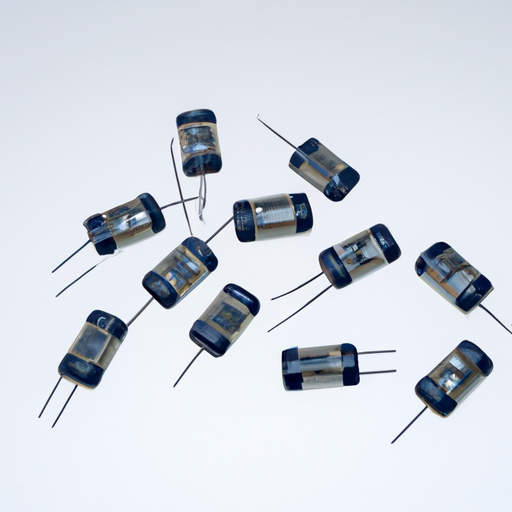Core Functional Technologies of Thin Film Capacitors
1. High Dielectric Constant Materials: Thin film capacitors utilize advanced dielectric materials, such as barium titanate or hafnium oxide, which possess high dielectric constants. This property allows for the fabrication of smaller capacitors without sacrificing capacitance, making them ideal for compact electronic devices.
2. Low Equivalent Series Resistance (ESR): The design of thin film capacitors results in low ESR, which is crucial for applications requiring high-frequency operation. Low ESR minimizes energy losses, enhances efficiency, and improves the overall performance of electronic circuits, particularly in power delivery systems.
3. Temperature Stability: Thin film capacitors can be engineered to maintain stable capacitance across a wide temperature range. This stability is essential for applications in environments with fluctuating temperatures, ensuring reliable performance in critical systems.
4. Integration with ICs: The ability to integrate thin film capacitors directly onto semiconductor substrates allows for reduced parasitic effects, such as inductance and capacitance. This integration enhances the performance of integrated circuits (ICs) and enables more compact designs.
5. Scalability: Thin film technology supports the production of capacitors in various sizes and capacitance values, making them adaptable for a wide range of applications. This scalability is particularly beneficial in industries where space and weight are critical factors.
Application Development Cases
1. RF and Microwave Applications: Thin film capacitors are essential components in RF and microwave circuits, where their high-frequency performance and low loss characteristics are critical. They are commonly used in applications such as filters, oscillators, and amplifiers, where signal integrity is paramount.
2. Power Management Systems: In power electronics, thin film capacitors play a vital role in DC-DC converters and power supply circuits. Their low ESR and high-frequency response contribute to improved efficiency and reliability, making them ideal for modern power management solutions.
3. Telecommunications: The telecommunications industry relies on thin film capacitors for signal processing and filtering applications. Their ability to handle high frequencies and provide stable performance is crucial for maintaining signal integrity in communication systems.
4. Consumer Electronics: In consumer devices like smartphones, tablets, and laptops, thin film capacitors are used for decoupling, filtering, and energy storage. Their compact size and high performance enhance the overall efficiency and functionality of these devices.
5. Automotive Electronics: With the increasing complexity of automotive systems, including electric vehicles and advanced driver-assistance systems (ADAS), thin film capacitors are becoming more prevalent. They are used for power distribution, signal processing, and energy storage, contributing to the reliability and performance of automotive electronics.
6. Medical Devices: In the medical field, thin film capacitors are utilized in diagnostic equipment and implantable devices. Their reliability and performance in critical applications are essential for ensuring patient safety and the efficacy of medical technologies.
Conclusion
Thin film capacitors represent a significant advancement in capacitor technology, offering high performance, miniaturization, and integration capabilities. Their applications span various industries, including telecommunications, consumer electronics, automotive, and medical devices. As technology continues to evolve, the demand for thin film capacitors is expected to grow, driving further innovation and development in this field. The combination of their unique properties and versatility positions thin film capacitors as a key component in the future of electronic design and application development.






